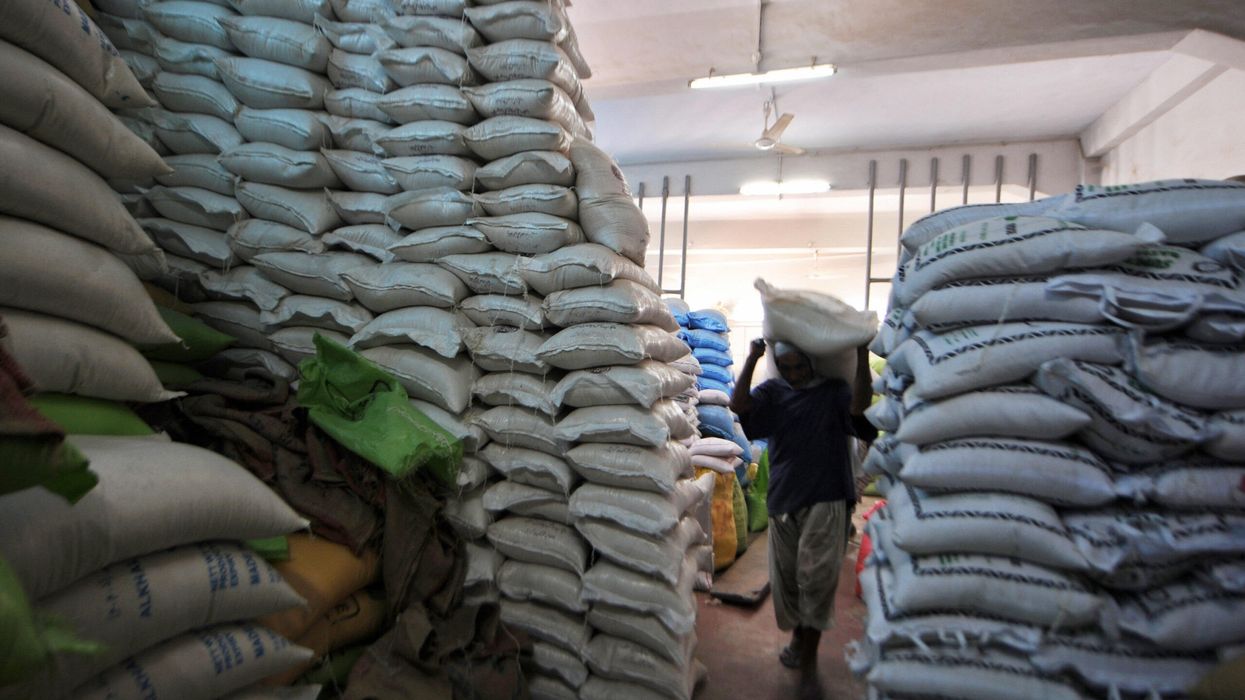PAKISTAN’S rice exports are likely to jump to a record high in the year ending in June as India’s decision to curb its own shipments forces buyers to purchase more from Islamabad.
The record exports are helping to alleviate tight supplies following the restrictions imposed last year by India, the world’s biggest exporter, and will bolster Pakistan’s depleted foreign exchange reserves, which are crucial for financing imports. Islamabad is offering the grain at nearly 16 year-high prices “We’ve seen a solid demand for rice in the last few months, mainly because India stopped exporting,” Chela Ram Kewlani, chairman of Rice Exporters Association of Pakistan (REAP) told Reuters.
India, which ordinarily ships nearly 40 per cent of globally traded rice, banned exports of non-basmati white rice in a surprise move last year and also imposed export duty on parboiled rice.
Pakistan’s exports could jump to five million metric tonnes in 2023-2024 financial year, up from the last year’s 3.7 million tonnes, Kewlani said.
Some industry officials are even more optimistic, suggesting that exports could reach 5.2 million tonnes, given the substantial improvement in production this year. Pakistan could produce 9 to 9.5 million tonnes of rice in 2023-2024 after production fell to 5.5 million tonnes a year ago because of floods, said a New Delhi-based dealer.
“Higher production and elevated global prices are allowing Pakistan to export at a rapid pace. In December alone, Pakistan exported around 700,000 tonnes of rice,” the dealer said.
Basmati rice exports could jump 60 per cent this year to 950,000 tonnes, while non-basmati exports could surge 36 per cent to 4.25 million tonnes, he said.
In terms of value, Pakistan’s rice exports could fetch more than $3 billion (£2.37bn) this year, an increase from the previous year’s $2.1bn (£1.66bn), said Aadil Nakhoda, an assistant professor at the Institute of Business Administration in Karachi.
Traditionally, India offered non-basmati rice at a lower price than Pakistan. However, with India out of the market, buyers are switching to Pakistan, and local prices are gradually rising despite higher production, said Hammad Attique, director, sales and marketing at Lahore-based Latif Rice Mills.
Pakistan is offering five per cent broken white rice at around $640 (£505) per tonne and parboiled rice around $680 (£537) per tonne, up from $465 (£367) and $486 (£384), respectively, a year ago.
Pakistan currently exports non-basmati rice mainly to Indonesia, Senegal, Mali, Ivory Coast, and Kenya and premium basmati rice to the European Union, Qatar and Saudi Arabia, dealers said.
In India’s absence, Vietnam, Thailand, and Pakistan are trying to fill the gap in the market. However, Pakistan’s relative proximity to buying countries in the Middle East, Europe and Africa provides it with a freight advantage, said a Mumbaibased dealer.
“India is likely to review export curbs after the elections in May. Pakistani exporters have already shipped around two-thirds of the entire year’s shipments, and they are expected to sell the entire quantity before May-end,” the dealer said. Pakistani farmers have been getting record prices for their paddy, said Kewlani. “Even in the next season Pakistan will have a bigger surplus,” he said. (Reuters)




